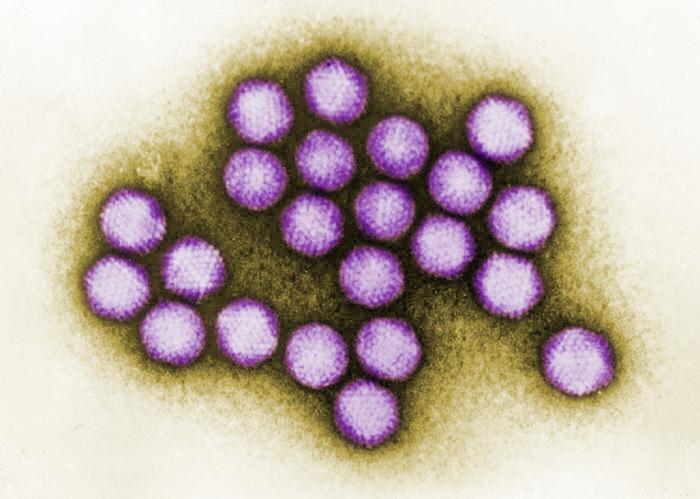NewsDesk @bactiman63
Information from the National Children’s Hospital on September 15 said that from August 2022 to now, the number of positive cases of Adenovirus disease detected at the National Children’s Hospital has increased dramatically.

Specifically, as of September 12, 2022, the total number of Adenovirus infections recorded at the hospital was 412 cases, more than the whole year of 2021 and an increase of more than 44.1% over the same period.
Six deaths have been recorded.
Only in the week from September 5 to September 11, the hospital recorded 151 positive cases of Adenovirus, an increase of nearly 2.2 times compared to the previous week.
The most common infections caused by adenovirus are upper respiratory tract infections, lower respiratory tract infections, eye conjunctivitis (pink eye), gastrointestinal diseases (diarrhea, vomiting, nausea, etc.).
According to experts, the Adenovirus is transmitted by droplets, through respiratory droplets between people. The disease can be spread through mucous membranes when swimming or contaminated water sources, or transmitted when healthy people share personal items with sick people. The incubation period is about 8-12 days.
Adenovirus can cause disease in all subjects and all ages (children are most common between the ages of 6 months and 5 years). In particular, subjects such as children, the elderly, people with chronic diseases often have a high risk of infection with this virus due to poor resistance.
Subscribe to Outbreak News TV on YouTube
Children infected with adenovirus often have symptoms such as: high fever, cough, wheezing, may be accompanied by conjunctivitis and digestive disorders. For children with severe symptoms, there is difficulty breathing.
According to Assoc. Prof. Dr. Le Thi Hong Hanh:
Adenovirus has the ability to spread quickly in the community and cause many dangerous complications if not treated promptly such as: respiratory failure, sepsis, multi-organ failure. The disease can also leave long-term complications, affecting the health of children such as: bronchiolitis obliterans syndrome after infection, bronchiectasis, pulmonary fibrosis.
When children have symptoms of suspected Adeno virus, tests will be done to support the diagnosis such as: blood tests, chest X-ray, tests to determine the cause by Realtime PCR technique. Children infected with this virus when hospitalized will be isolated in separate wards; Respiratory support (oxygen or mechanical ventilation) as needed and antibiotics in case of pneumonia superinfection.
Doctors also shared that sick children will be treated for symptoms by: reducing fever when high fever, rehydrating electrolytes, nutritional supplements, using specific antiviral drugs for severe cases, depression reduced immunity. Antiviral drugs are not routinely indicated for all patients.
“If the child has abnormal respiratory symptoms, parents need to take the child immediately to a medical facility for timely examination, diagnosis and treatment, to avoid possible dangerous complications” – Assoc. Le Thi Hong Hanh recommends.
- Paraguay reports suspected measles case, Sample to be sent to CDC
- Enterovirus is circulating in Finland more than usual
- Q fever increase reported in Wide Bay, Queensland
- Democratic Republic of the Congo: Measles cases top 100,000 in the first eight months of 2022
- Florida: Two Eastern Equine Encephalitis cases reported in Hillsborough County horses
- Philippines dengue cases top 145,000, Deaths rise another 39
- Dengue advisory reissued for Asia
- Anthrax cases detected in Azerbaijan

